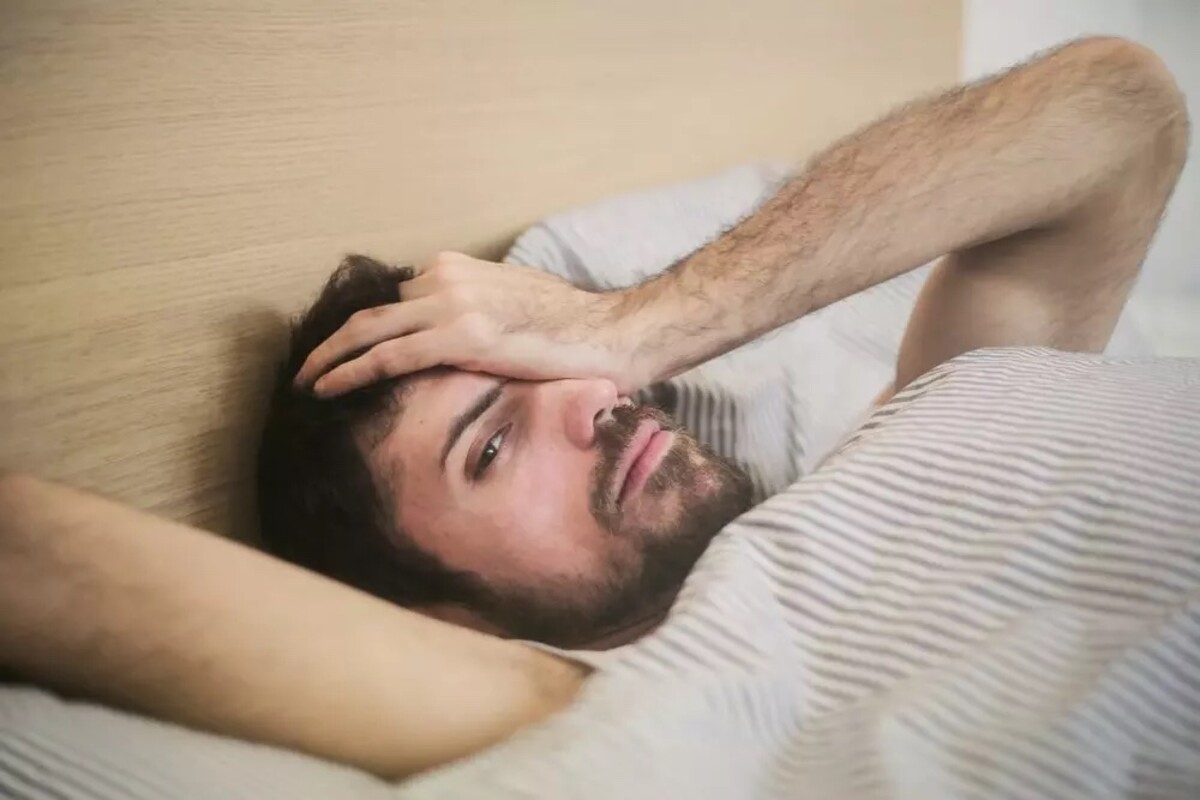We will look at the habits depriving you of peaceful nights.
You are irritable, you suffer from headaches, you have no appetite and at the same time you would eat anything unhealthy. During the night you feel like you're cursed, you're constantly tossing and turning and your thoughts can't stop. Sounds familiar? Quality sleep is just as important for your health as a balanced diet and exercise - you can survive without them, but you will feel drained, without energy, and health problems will increase. Let us give you some tips on how to achieve a restful night.

Movies and infinite scrolling in bed
Your body has its own version of a clock, which experts refer to as a circadian rhythm. You can imagine this as a classic clock - all the wheels must fit together, otherwise they won't show the exact time. The smooth and regular movement of the hand of your internal clock is influenced by many factors, one of which is light.
According to a study, blue light from screens (television, tablet, computer or phone) reduces the level of melatonin in the body, which has a negative effect on sleep. Melatonin is popularly called the sleep hormone. It arises as a natural reaction of the brain to a dark environment, it is the reason why it starts to "turn you off" and why you don't want to do anything when it gets dark. In the evening, when your body expects darkness and you expose it to blue light instead, it's like resetting your circadian rhythm. Your brain gets confused, which disrupts quality sleep.

Not everyone knows how to completely avoid light before going to bed, whether it's for work, school, or as part of a break while watching series or videos on Tiktok. If you belong to this group of people, glasses that block blue light rays and thus prevent melatonin levels from dropping may offer some help.
The Last Supper
The effect of diet on sleep is essentially simple mathematics that many people forget. Your body needs enough time to digest the food and absorb the necessary nutrients. Everyone's metabolism works at a slightly different pace, but experts say you shouldn't eat three hours before bed. This time should give you time to digest and at the same time give you a sufficient window so that you don't go to bed feeling hungry.
Sometimes it happens that you cannot enjoy your dinner at a convenient time. Hunger can disrupt sleep just as much as a full stomach, so your only option is to make good food choices. In this case, reach for a light dinner, such as vegetables with a little hummus or plain yogurt with fruit. A night trip for a kebab after a party will not be the best solution to help you sleep soundly after a night of dancing.

Did you know that the effect of caffeine can be felt by the body for up to six hours? Even if it doesn't seem like it at first, your sleepless nights may be the result of afternoon coffees. If you favour a late espresso, go for the decaffeinated version.
Naps
Some people feel the need to take a nap during the day and replenish their energy, and the Spanish even have made this habit into an unwritten national duty. Is an afternoon power nap really beneficial?
Several studies have shown that napping for as little as ten minutes improves performance, and short naps of up to thirty minutes promote alertness and learning ability. Large, progressive companies such as Google or Nike take this fact into account, already a few years ago they created a space for their employees to relax during the working day.
The problem arises if you take naps irregularly or sleep too long. This way, you can throw off your circadian rhythm and experience problems with insomnia during the night. Try to create a sleep pattern, i.e. falling asleep and waking up at the same time.

Bedroom environment
Your bedroom should become a peaceful oasis that will help you relax your mind and body. It means something different for everyone, but in general, the organism rests best in a quiet, cool and dark environment. Scientists have even found that your body is more disturbed by high temperature than noise. Therefore, try to ventilate the bedroom as much as possible and keep it cool, according to the recommendation, the optimal temperature is around 20 °C.
You get up in the morning, you feel like every joint is cracking and you often have a headache. Healthy sleep will also be greatly affected by the choice of mattress, pillows, duvets and sheets. You might think that investing in quality bedding is unnecessary, but you'd be surprised how many problems a good night's sleep can solve.
The choice of mattress is very individual and can affect health problems. The position in which you like to fall asleep can help you. Sleeping on a mattress that does not offer proper support for your usual sleeping position can contribute to pain and poor sleep.
- On the back: You will need a firmer mattress that will provide sufficient support for your vertebrae. A firmer foam or hybrid mattress (combining springs and foam) could be the right choice.
- On your side: Sleeping on your side puts pressure on your shoulders and hips, so a softer mattress is better to help ease the strain. Memory foam mattresses are a good choice.
- Prone: According to experts, the prone position puts strain on the back and can lead to cervical spine pain over time. If you are one of those people who can only fall asleep on your stomach, lean towards a firmer mattress that will provide you with sufficient support.
- Mixed sleep: Some people toss and turn during the night and change positions frequently. In this case, a moderately hard mattress should provide you with sufficient comfort and spine support. Avoid memory foam, it can cause you discomfort when you roll over.
Supplements
Sleep problems may be a medical condition, but this must be assessed by your doctor. The alpha and omega of a healthy lifestyle is a nutritionally dense and balanced diet. Try adding a few supplements to it that relax the body and help you sleep better.
- Glycine: It is a non-essential amino acid that the body can make itself, but only in small amounts. In the human body, glycine is found in high concentration in the skin, connective tissues, joints and muscle tissue. It plays an important role in muscle regeneration. Research has shown that taking three grams of glycine has a positive effect on sleep quality.
- L-theanine: It is naturally found in green tea, and has several beneficial effects, including reducing anxiety, promoting relaxation and calming the body.
- Ginko biloba: This plant is well known for its effects on brain activity. However, one study showed that 250 mg of ginkgo extract taken thirty to sixty minutes before bed helped reduce stress and improve sleep.
- Valerian: According to studies, this beneficial herb shortens the time of falling asleep and contributes to deeper sleep.
- Lavender: Fragrant purple lavender flowers have several beneficial benefits, including calming the body and better sleep.

Remember that sleep optimization is a process that will not improve overnight, it is likely that you will feel the first changes in a few weeks. It's definitely worth it, you'll see how quality rest can turn your life around.




